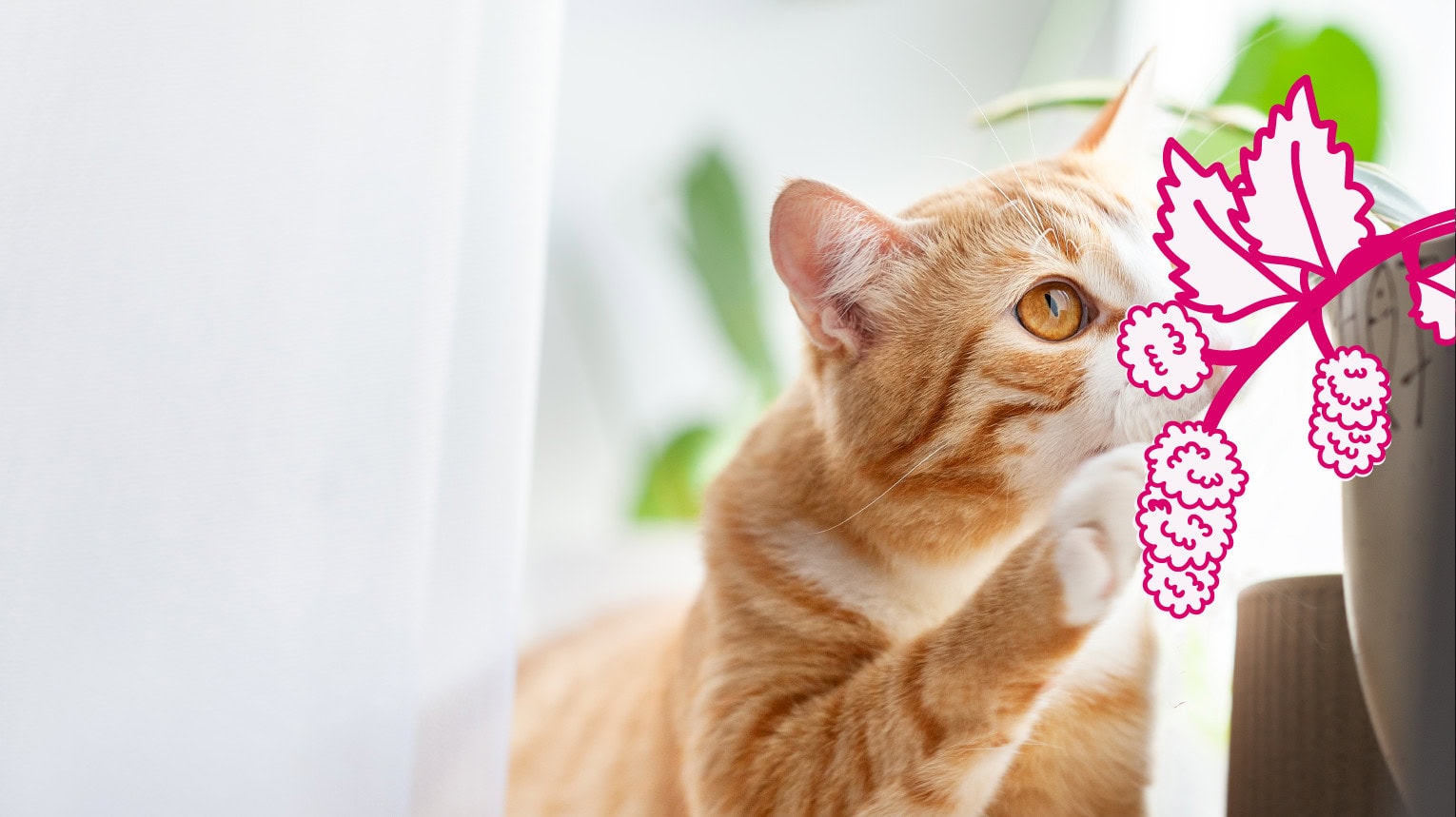We have long been fascinated by the euphoria our cat experiences in response to catnip. A whole range of catnip products is available to enhance our kitty’s playtime, encourage mental stimulation, and even help them relax. Their behavior can be quite unique, so what exactly does catnip do to a cat?
What is Catnip?
Catnip, or its scientific name Nepeta cataria, is a member of the mint family. It originally grew in Europe and Asia but now grows globally and can grow in gardens or roadsides. It’s also sometimes known as catwort or catmint.
The secret to catnip is a chemical substance found within the plant called nepetalactone – this is what cats go crazy for. Nepetalactone is found in the stems, seeds, and leaves of the catnip plant, and it gets released when the plant is crushed, chewed, or rubbed. That’s why cats often like to roll in catnip, as they are trying to release more of the oily secretions to get more of a fix for the delicious smell.
What Does Catnip Do to Cats?
When cats get a whiff of catnip, nepetalactone enters their nose. There are two mechanisms involved in what happens next. Cats have a highly specialized organ at the back of their throat called the vomeronasal organ. It’s a bit like a brain in the nose, and it’s designed to detect pheromones, which are the sex hormones that cats use to let others know they are ready to breed. The interesting fact about nepetalactone is that it mimics these pheromones, binding to receptors in the vomeronasal organ.
However, scientists have found that the olfactory system may also affect how cats respond to nepetalactone. When a cat inhales nepetalactone, it binds to another specialized group of cells called the olfactory cells.
What Does Catnip Do to Cat’s Brains?
When cats smell catnip, it activates their brain. This triggers the release of feel-good chemicals called endorphins, which cause unique changes in their behavior. It’s like a “high” that humans get from some drugs. Catnip is safe for cats and different from cannabis, which can be harmful.
We’re not sure why cats love catnip so much, but it’s believed that their brain sees it like pheromones. This leads to typical behaviors like playing, eating, and hunting, but these responses can be random and come and go.
Behavioral Responses to Catnip
Usually, cats have a bit of a mad moment when they play with catnip. But there can be a huge range of ways they can respond to the endorphin release.
- Running, skipping, or jumping
- Stretching
- Drooling
- Increased alertness
- Dilated pupils
- Increased desire to play or exercise
- Relaxation
- Increased desire to sleep or rest
- Increased desire for affection or attention from you
- Aggression – catnip should be avoided if your cat responds in this way
The effects of catnip are short-lived and tend to wear off after just 30 minutes. This is because cats lose their sensitivity to nepetalactone after this time. Once it’s worn off, cats usually become quiet and relaxed. And you don’t need to worry – the effects of catnip are not addictive, and cats cannot become dependent or overdose on it.
Catnip Doesn’t Affect All Cats
It’s presumed that the way individual cats respond to catnip is genetic. Around 20-30% of cats don’t produce any response to it at all. So if your cat doesn’t seem to like catnip, it’s nothing to worry about and is quite common. Kittens are not sensitive to catnip or nepetalactone before they are 3-6 months old.
How Should I Give Catnip to My Cat?
Catnip can be used in several ways to make playtime more interesting and exciting or even to help your cat feel calm and relaxed. You’ll find a huge range of products containing catnip, or you could even have a go at growing your own! Try out a few different products to see what your cat likes best:
- Catnip treats
- Fresh catnip
- Dried catnip – this can be sprinkled on other toys or bedding to make it more attractive or interesting for your cat
- Catnip toys such as balls, mice, and scratching posts
- Catnip spray – this is a very concentrated form, so ensure you follow the manufacturer’s instructions
Conclusion
In conclusion, cats can become happy, relaxed, and excited when they sniff catnip because of the compound nepetalactone found in the plant. Every cat responds slightly differently to catnip, with some cats not reacting. But it is a safe and non-toxic plant that you can use to enhance your cat’s mental and physical well-being and make playtime more enjoyable. Catnip might be a fun way to help build a bond through play if you’ve just welcomed a new cat to your home.
If you have additional questions, chat online with our veterinarians at BetterVet!
Frequently Asked Questions
What does catnip do to cats?
Nepetalactone, the compound found in catnip, is thought to mimic pheromones that, when sniffed, trigger an endorphin release followed by species-specific behaviors such as feeding, playing, and predatory behaviors.
What happens when a cat smells catnip?
The smell receptors in a cat’s nose detect nepetalactone, which sends messages to the brain to release endorphins. Cats usually become excited, happy, hyperactive, or calm. Some cats become aggressive or don’t react at all.
How much catnip can a cat have?
Catnip is safe and non-toxic; your cat cannot overdose on it. Fresh leaves are more potent than dried catnip, and you should always follow the instructions on the packaging.





